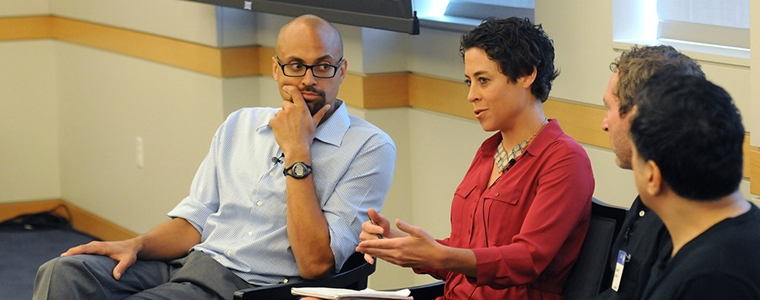What's Happening in Conflict Resolution [10.21.14]
"What's Happening in Conflict Resolution" is a weekly round up of the all the ADR news, jobs, events and more. Check it out each week and view past versions [HERE].
NegMOOC Starts Today
Noam Ebner- My MOOC on Negotiation: Navigating Professional and Personal Interactions begins today. The course is asynchronous, and there are no set times for lectures and meetups. As a result, the kickoff time of 10 am this morning is one of the only set times in the course - so I'm loading a lot of excitement onto it!
Glad to see so many of you with me at the starting line! Want to join? Sign up here: https://www.canvas.net/courses/negotiation-navigating-professional-...
See you inside!
-Noam
Sweeping Things Under the Rug
One way of coping with conflict is to sweep things under the rug. As you likely know, this metaphor refers to ignoring problems rather than facing and managing them. One idiomatic definition consistent with this from Wiktionary is “To conceal a problem expediently, rather than remedy it thoroughly.” Sometimes the tendency to sweep things under the rug comes with the hope that what is concealed will remain undiscovered.
Why do any of us sweep things under the rug? It may be because the truth is too painful to bear, or we fear the other person’s reaction and the consequences, or we hope things can be resolved without raising the issue.
Five steps to master the art of negotiating
"A Winner's Guide to Negotiating: How Conversations Get Deals Done" by Molly Fletcher (McGraw-Hill, $18).
 As a sports and entertainment agent, who worked on $500 million in deals over two decades, Fletcher experienced the good and bad sides of negotiating tactics. She sees successful negotiation as a five-step process:
As a sports and entertainment agent, who worked on $500 million in deals over two decades, Fletcher experienced the good and bad sides of negotiating tactics. She sees successful negotiation as a five-step process:
1. "Setting the stage" — Practice "360-degree awareness" by doing your homework. That starts with knowing why (yours and theirs) because why provides clarity of expectations. It provides a baseline for identifying things both sides value — including trust and respect.
Awareness also involves knowing the marketplace. People have other choices. Do your market research. Look at your competition's website; pay attention to their social media presence. Look at what's said about them in the news. If you lost deals to them, try to find out why.
Read more from HartfordBusiness.com [HERE].
Narrative Mediation: Loosening The Grip Of Conflict
Narrative mediation is a culturally focused practice that is based upon the notion that our lives are shaped by the stories that people tell about us and by the stories that we tell ourselves. The goal of the narrative mediator is to co-author stories that highlight strengths and competencies, rather than conflict. It helps people separate themselves from conflict-saturated stories and gives them the opportunity to re-author relationships in more peaceful, cooperative, and respectful ways. From this alternative position, the resolution of conflict can often happen much more smoothly and effectively than in traditional problem-solving approaches.
Read more [HERE].
Music Plays Crucial Role in Non-Violent Civic Movements

About
@ADRHub Tweets
© 2026 Created by ADRhub.com - Creighton NCR.
Powered by
![]()

You need to be a member of ADRhub to add comments!
Join ADRhub